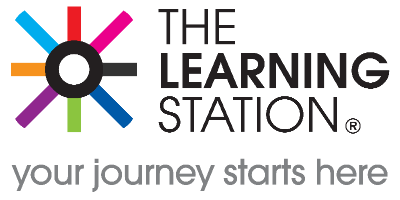Interviews can be a daunting experience. The feeling of walking into an interview room and being greeted by one or two (maybe three) interviewers is extremely intimidating. After all, these people stand in the way of the job you want.
Some people feel at ease going to interviews. But a majority of us, get a little anxious. And I can totally understand how you feel.
Thankfully, this blog post aims to share a step-by-step process in helping you prepare for that all-important interview.
1. Get To Know The Company
When getting an invite for an interview, you need to know the company inside-out.
You can familiarise yourself with the company by visiting their website. Find out what the company's aims and goals are and become attuned to their beliefs. Also, look out for any recent positive news about the company in the media.
Interviewers really do appreciate when you've taken the effort to research the company they work in. It show's you're willing to learn and want to help the company succeed.
2. Read The Job Description Or Job Profile
The job description holds a wealth of information. It describes the main duties of the position as well as the required qualifications, skills and experience needed to be able to do the role.
If you found a job listing without a job description, then you can scour the internet to look at job profiles which match the vacancy. The best places to look for job profile is the
National Careers Service and
Prospects.
You can use this information to help you prepare your answers for any questions that may come up in relations to those skills and experience. This follows nicely to my next point.
3. Identify Questions That May Come Up In the Interview
Knowing what questions that will come up in an interview is a huge advantage. It helps to calm the nerves and makes you feel more prepared.
Most interviewers use standard competency-based questions. These questions try to assess a specific skill or competency and they're assessed by positive indicators and evidence that you provide in your answer. (We'll talk about this in step 4).
As mentioned in the previous section, the best way to know what questions will come up in an interview is to look at the job description or job profile. They contain information on what skills, experience and qualifications that are required to do the role.
So to give you an example, one of the skills that is required for a customer service role is communication skills. A typical question to assess this skill is:
"Can you give us an example of a situation where you had to deal with a conflict with a customer?"
If you can think of time where you have demonstrated impressive communication skills to resolve a conflict with a customer, then write it down. It will come in handy when we try to structure your answer in the next step.
4. Prepare The Answers For Those Questions Using STAR
In helping you prepare your answers, it is best to keep to a structure so you can easily remember them. A tried-and-tested strategy that has worked for me in the past is called
the STAR technique.
STAR is an acronym which stands for:
•Situation
•Task
•Action
•Result
This approach is universally recognised and many interviewers have been trained in using this technique. This technique not only helps you, but it also helps the interviewer as well. It helps the interviewer to be more receptive to your answers, thanks to its simple structure.
To understand how to use the STAR method, the following outlines what needs to be done for each step:
Situation
When answering an interview question, you need to give a scenario. This helps the interviewer visualise how you could use the competency or skill that is in question. When setting the context, keep it concise and to the point. The majority of your answer should focus on the action.
Task
Once you set your situation, you need to describe the task that you had to encounter. Again, like the previous step, you need to keep this brief and direct.
Action
This is the most important step of the STAR technique. This is where you have to explain what you did and why you did it. Remember to go in to detail and do not assume your interviewer will know what you're talking about.
It is crucial that you explain the reasons behind your actions. Interviewers want to be able to understand why you took those steps and why you felt those actions were necessary to complete the task.
Result
Of course, interviewers will be interested to know the outcome of your actions. And this is where you do. In doing so, make sure you reflect on the outcome. If you felt that you that you could have improved your actions, then tell them. Interviewers really acknowledge those who are able to self-reflect and improve themselves for their own professional development.
5. On The Day
First impressions are everything, so wear your best formal wear (and make sure they've recently been cleaned). When it comes to the day of the interview, give yourself plenty of time. Arrive early and go through your notes.
6. Let Go Of The Outcome
This step comes from my own experience. When preparing for the interviews, we tend to focus on the outcome. After all, we want the job. But in doing so, we forget about on the actual interview preparation.
Letting go of the outcome immediately makes you feel relaxed. And it allows you to focus on preparing your answers to your very best. Because at the end of day, interviewers want to see you doing your best.
Thanks for reading. How do you prepare for interviews? Let us know in the comments section below.
Featured image:
Pexels 


 Student Login
Student Login My Account
My Account